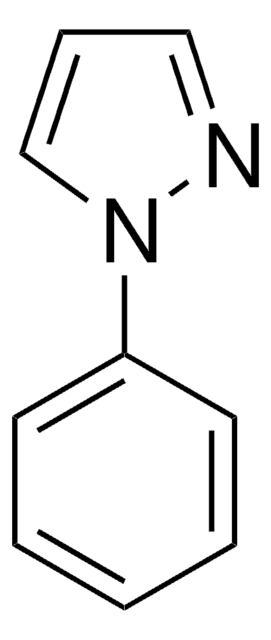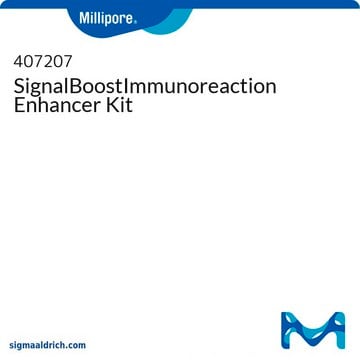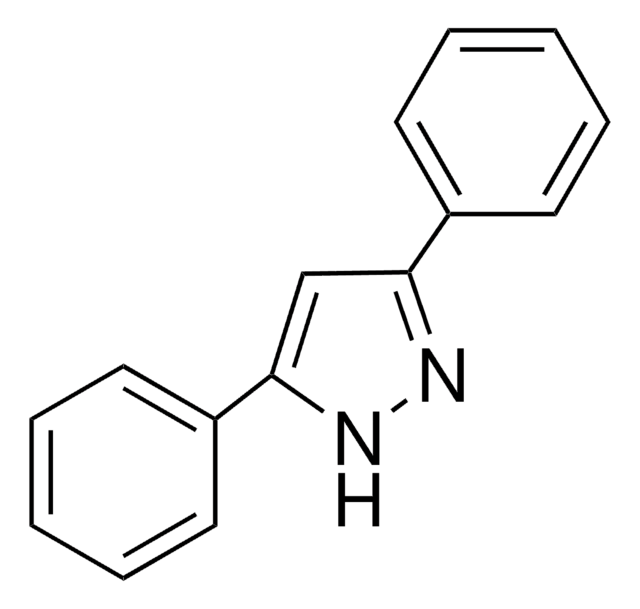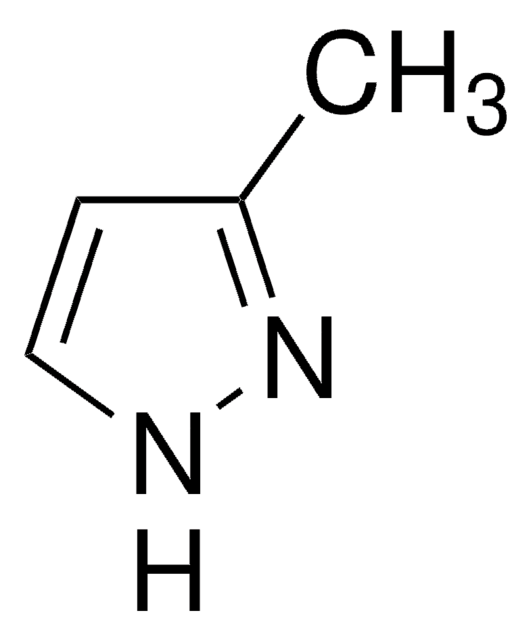All Photos(2)
About This Item
Empirical Formula (Hill Notation):
C9H8N2
CAS Number:
Molecular Weight:
144.17
MDL number:
UNSPSC Code:
12352100
PubChem Substance ID:
NACRES:
NA.22
Recommended Products
Assay
97%
form
solid
mp
78-82 °C
SMILES string
c1ccc(cc1)-c2cc[nH]n2
InChI
1S/C9H8N2/c1-2-4-8(5-3-1)9-6-7-10-11-9/h1-7H,(H,10,11)
InChI key
OEDUIFSDODUDRK-UHFFFAOYSA-N
Related Categories
Signal Word
Warning
Hazard Statements
Precautionary Statements
Hazard Classifications
Acute Tox. 4 Dermal - Acute Tox. 4 Inhalation - Acute Tox. 4 Oral - Eye Irrit. 2 - Skin Irrit. 2 - STOT SE 3
Target Organs
Respiratory system
Storage Class Code
11 - Combustible Solids
WGK
WGK 3
Flash Point(F)
Not applicable
Flash Point(C)
Not applicable
Personal Protective Equipment
dust mask type N95 (US), Eyeshields, Gloves
Certificates of Analysis (COA)
Search for Certificates of Analysis (COA) by entering the products Lot/Batch Number. Lot and Batch Numbers can be found on a product’s label following the words ‘Lot’ or ‘Batch’.
Already Own This Product?
Find documentation for the products that you have recently purchased in the Document Library.
F Manzoor et al.
Journal of economic entomology, 110(6), 2527-2533 (2017-10-19)
The aim of this study was to test the bioavailability and degradation in soil of the termiticides bifenthrin and fipronil, which are used to treat subterranean termites (Heterotermes indicola, Wasmann). Soil collected from different areas of Lahore was categorized as
Tianyun Su et al.
Journal of medical entomology, 56(4), 1047-1054 (2019-02-28)
The peridomestic anthropophilic Aedes aegypti L. (Diptera: Culicidae) is originated from the wild zoophilic subspecies Aedes aegypti formosus in sub-Saharan Africa, and currently has a broad distribution in human-modified environments of the tropics and subtropics worldwide. In California, breeding populations
Haihua Wu et al.
Pesticide biochemistry and physiology, 115, 9-14 (2014-10-14)
The acute toxicity of fipronil and its sublethal effects on detoxification enzymes (carboxylesterases (CarEs), glutathione S-transferases (GSTs), and 7-ethoxycoumarin O-deethylase (ECOD)) in zebrafish (Danio rerio) were investigated. The results indicated that the 24-h LC50 of fipronil for zebrafish was 220.4
Julie Chevalier et al.
Environmental toxicology and chemistry, 34(8), 1760-1769 (2015-03-12)
Behavior is increasingly reported as a sensitive and early indicator of toxicant stress in aquatic organisms. However, the systematic understanding of behavioral effects and comparisons between effect profiles is hampered because the available studies are limited to few chemicals and
Our team of scientists has experience in all areas of research including Life Science, Material Science, Chemical Synthesis, Chromatography, Analytical and many others.
Contact Technical Service









